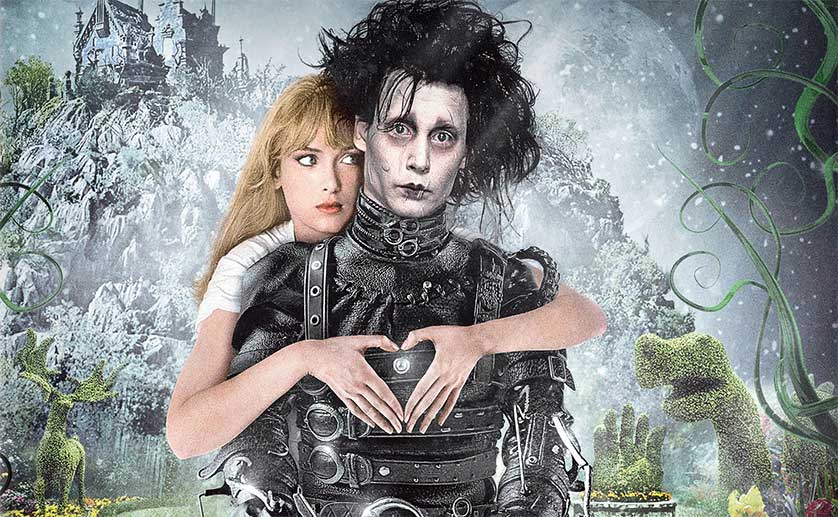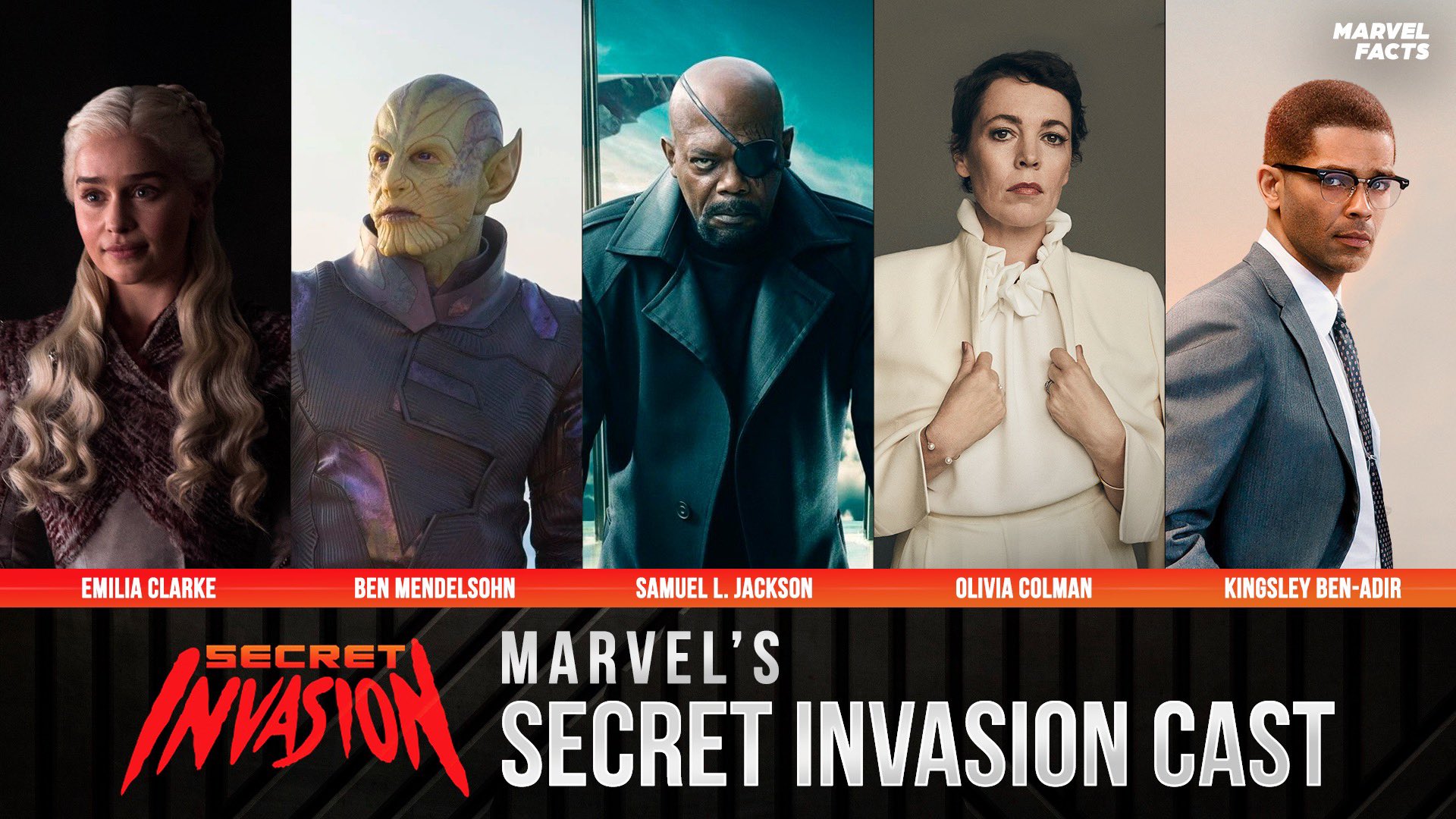 Edward Scissorhands (1990): A unique blend of fantasy and romance, this Tim Burton classic follows the story of an artificial man with scissors for hands who falls in love with a suburban girl, highlighting themes of acceptance and love beyond appearances.
Edward Scissorhands (1990): A unique blend of fantasy and romance, this Tim Burton classic follows the story of an artificial man with scissors for hands who falls in love with a suburban girl, highlighting themes of acceptance and love beyond appearances.
Set in a pastel-colored suburban town, Edward Scissorhands transports viewers into a world where peculiarities are embraced rather than shunned. The film introduces us to the titular character, Edward, played by Johnny Depp in one of his most iconic roles. Edward is an artificial man with scissors for hands, created by an eccentric inventor who passed away before he could complete his creation. Left alone in a hauntingly beautiful mansion, Edward lives a reclusive life until he is discovered by Peg, a kind-hearted Avon saleswoman portrayed by Dianne Wiest.
Peg decides to bring Edward home to her picture-perfect neighborhood, where he’s met with both awe and apprehension. As Edward navigates the complexities of human interaction, it becomes evident that his sharp appendages are both a blessing and a curse. While he possesses an extraordinary talent for sculpting hedges and creating remarkable hairstyles, his scissorhands raise concerns among the locals, who struggle to look past his unconventional appearance.
Amidst the initial skepticism, Edward befriends Peg’s daughter, Kim, portrayed by Winona Ryder. Their friendship blossoms into a captivating romance, defying societal norms and challenging the limits of conventional love. Through their relationship, the film explores the profound message that true acceptance and connection transcend physical appearances.
Tim Burton’s distinct visual style is integral to the film’s magical allure. The contrast between the vibrant, cookie-cutter suburbia and Edward’s dark, gothic mansion represents the clash between conformity and individuality. The director’s imaginative and dreamlike cinematography captures the essence of the story, emphasizing the stark differences between Edward and the superficial world he becomes a part of. This juxtaposition forces both Edward and the audience to question societal expectations and the nature of true beauty.
As Edward’s innocence and pure heart shine through, he inadvertently becomes a catalyst for personal growth and self-discovery within the community. The film delves into themes of empathy, tolerance, and the power of embracing one’s uniqueness. Edward Scissorhands serves as a poignant reminder that genuine connections are formed when we look beyond external appearances and appreciate the beauty within.
In conclusion, Edward Scissorhands is a cinematic masterpiece that weaves fantasy and romance together to explore the transformative power of love and acceptance. Tim Burton’s visionary storytelling, combined with Johnny Depp’s captivating performance, creates an unforgettable tale that resonates with audiences of all ages. By celebrating individuality and defying societal norms, the film encourages us to embrace our differences and find beauty in unexpected places. Edward Scissorhands remains a timeless classic, reminding us that love knows no boundaries, even when faced with scissors for hands.
Eternal Sunshine of the Spotless Mind (2004) is a mind-bending sci-fi romance that delves deep into the intricacies of memory and love. Directed by Michel Gondry, this thought-provoking film takes viewers on a journey alongside a couple who undergo a groundbreaking procedure to completely erase each other from their memories. As the story unfolds, the couple rediscovers their profound connection and finds themselves faced with the ultimate decision – whether to give love another chance.
The film introduces us to Joel Barish, a introverted man living a monotonous life. Joel’s life takes an unexpected turn when he meets Clementine Kruczynski, an impulsive and free-spirited woman who instantly captivates him. Their initial encounter sparks a whirlwind romance, but soon their relationship begins to crumble under the weight of past experiences and insecurities. In a desperate attempt to move on, Clementine decides to undergo a revolutionary medical procedure that will erase Joel from her memory.
As the narrative unfolds, viewers are immersed in a fragmented timeline that jumps between the present and Joel’s memories. This unconventional storytelling technique adds layers of complexity to the film, mirroring the intricacies of memory itself. Through Joel’s memories, we witness the beautiful moments, the heartbreak, and the flaws that ultimately led to the dissolution of their relationship.
However, as the memories are progressively erased, Joel realizes that he doesn’t want to forget Clementine. Fueled by an overwhelming desire to hold onto their shared experiences, he fights against the erasure, seeking refuge in the recesses of his own mind. In this struggle, Joel discovers the true extent of his love for Clementine and the profound impact she has had on his life.
Meanwhile, as Joel fights to preserve their memories, Clementine stumbles upon a series of tapes that document her relationship with him. Listening to these tapes, she begins to gain insight into their troubled past and the reasons behind their decision to erase each other. This newfound knowledge reignites Clementine’s feelings for Joel, prompting her to question whether erasing their memories was truly the right course of action.
In an emotionally charged climax, Joel and Clementine meet again, unaware of their past relationship due to the memory erasure. As they experience a sense of déjà vu and an unexplainable connection, they are faced with a choice – to embrace their shared past and rebuild their relationship or to let go and accept that some memories are better left behind.
Eternal Sunshine of the Spotless Mind is a mesmerizing exploration of the human mind, love, and the complexities of memory. It challenges viewers to ponder the nature of relationships, the consequences of erasing painful memories, and the power of love to transcend time and circumstances. Through its unique storytelling and remarkable performances by Jim Carrey and Kate Winslet, this film leaves an indelible mark, reminding us that even the most painful memories can shape us into who we are and that love, despite its challenges, is always worth fighting for.
The Time Traveler’s Wife (2009) is a captivating film adaptation of the novel written by Audrey Niffenegger. In this mesmerizing story, we are introduced to a man who grapples with an extraordinary genetic disorder that propels him into unpredictable journeys through time. As the plot unfolds, we are immersed in the complexities of his relationship with his wife and their relentless pursuit to forge a lasting bond amidst the uncertainties of time.
The film delves into the challenges faced by Henry DeTamble, the time-traveling protagonist portrayed by Eric Bana. Henry’s genetic anomaly causes him to involuntarily jump through time, creating a life filled with immense unpredictability. This neurological condition disrupts his ability to control when and where he travels, leading to encounters with his future and past selves. Through this intricate narrative, the film explores the profound implications of time travel on an individual’s life and relationships.
At the heart of the story lies the profound love between Henry and his wife, Clare, portrayed by Rachel McAdams. Their relationship is an enduring testament to the strength of love, as they navigate the challenges that arise from Henry’s temporal disorientation. The couple’s determination to build a life together, despite the constant interruptions caused by his time-traveling episodes, serves as the emotional core of the film.
As the plot unfolds, we witness the couple’s efforts to adapt to their unique circumstances. Clare, who has known Henry since she was a child, patiently waits for him to reappear in her life, never wavering in her commitment. Their love transcends the constraints of time, demonstrating the resilience of their bond and the power of connection.
The Time Traveler’s Wife skillfully intertwines elements of science fiction, romance, and drama, resulting in a thought-provoking cinematic experience. It explores profound themes such as fate, destiny, and the significance of every moment in our lives. This film invites viewers to contemplate the complexities of time and the impact it has on our existence.
In conclusion, The Time Traveler’s Wife offers a unique and captivating exploration of love in the face of extraordinary circumstances. Through the lens of time travel, we witness the challenges faced by Henry and Clare as they strive to maintain their connection. This film serves as a poignant reminder of the importance of cherishing each moment and the power of love to transcend the barriers imposed by time itself.
Set in a not-too-distant future, the thought-provoking film “Her” takes us on a journey alongside a lonely writer who discovers an unexpected emotional connection with an intelligent operating system. As we delve into their evolving relationship, the movie compellingly raises profound questions about the essence of human connection in an increasingly technologically advanced society.
In “Her,” we are transported to a world where technology has advanced to the point where artificial intelligence interfaces seamlessly with daily life. The protagonist, Theodore, played by Joaquin Phoenix, finds solace in this new reality as he stumbles upon an operating system named Samantha, voiced by Scarlett Johansson. Initially skeptical, Theodore’s hesitations gradually fade away as he develops a deep emotional bond with Samantha.
Throughout the film, the unconventional romance between Theodore and Samantha challenges the traditional notions of human connection. As the relationship grows, it becomes apparent that Samantha possesses a level of understanding and empathy comparable to that of a human being. This discovery prompts us to question the boundaries of our own emotional experiences and the role technology plays in shaping them.
The movie explores the concept of intimacy in the digital age, making us ponder whether genuine emotional connections can be formed with non-physical entities. Theodore’s journey forces us to confront our own preconceived ideas about love and companionship. Can a relationship without a physical presence be as fulfilling as a traditional one? As we witness Theodore’s genuine happiness and contentment, it becomes increasingly difficult to dismiss the authenticity of his connection with Samantha.
“Her” not only examines the nature of human connection, but also sheds light on the potential consequences of our growing reliance on technology. In a world where virtual interactions increasingly replace face-to-face encounters, the film serves as a cautionary tale. It forces us to reflect on the dangers of isolating ourselves behind screens and losing touch with the tangible relationships that make us truly human.
Ultimately, “Her” serves as a reminder that human connection encompasses more than physical touch or proximity. It challenges us to reevaluate our biases and embrace the ever-evolving landscape of technology, exploring the potential for meaningful relationships beyond the boundaries of conventional norms.
In its exploration of love, loneliness, and the blurring lines between humanity and technology, “Her” invites us to question what it truly means to be connected in a technologically advanced society. As we continue to navigate the ever-changing digital landscape, this thought-provoking film serves as a poignant reminder of the importance of genuine connections and the beauty of our shared human experience.



